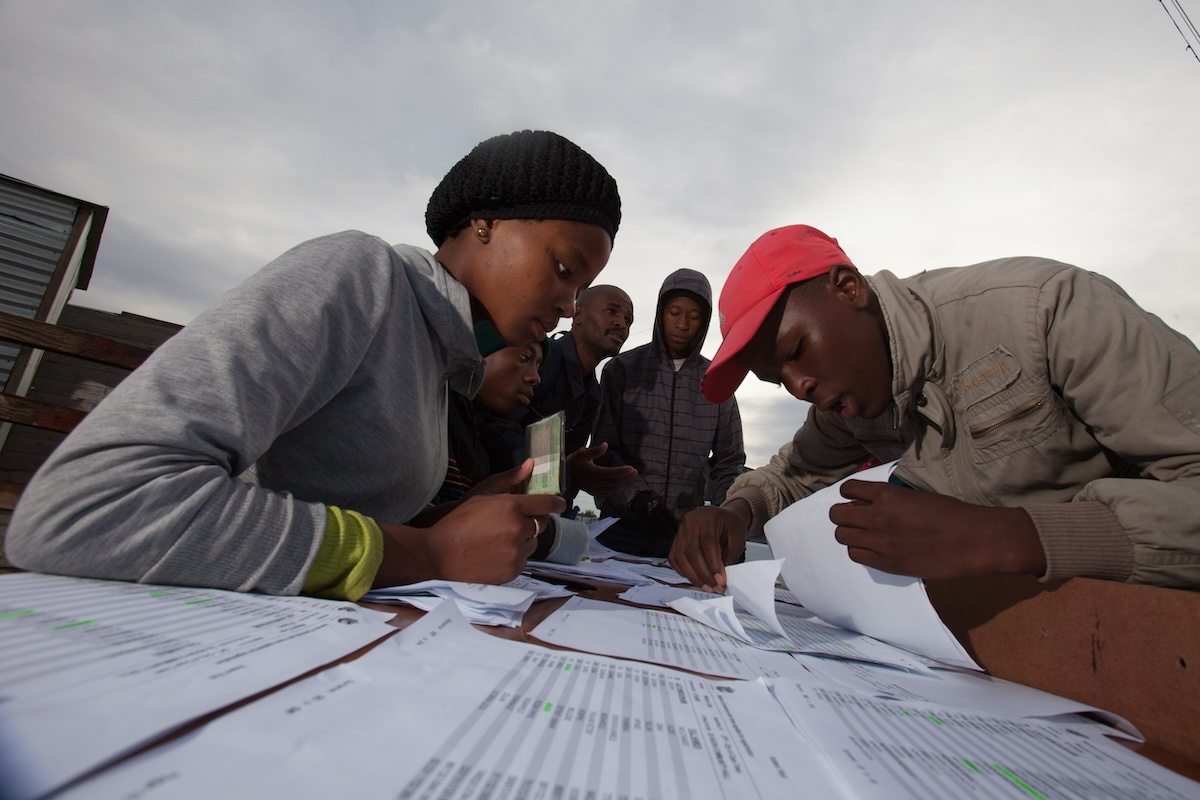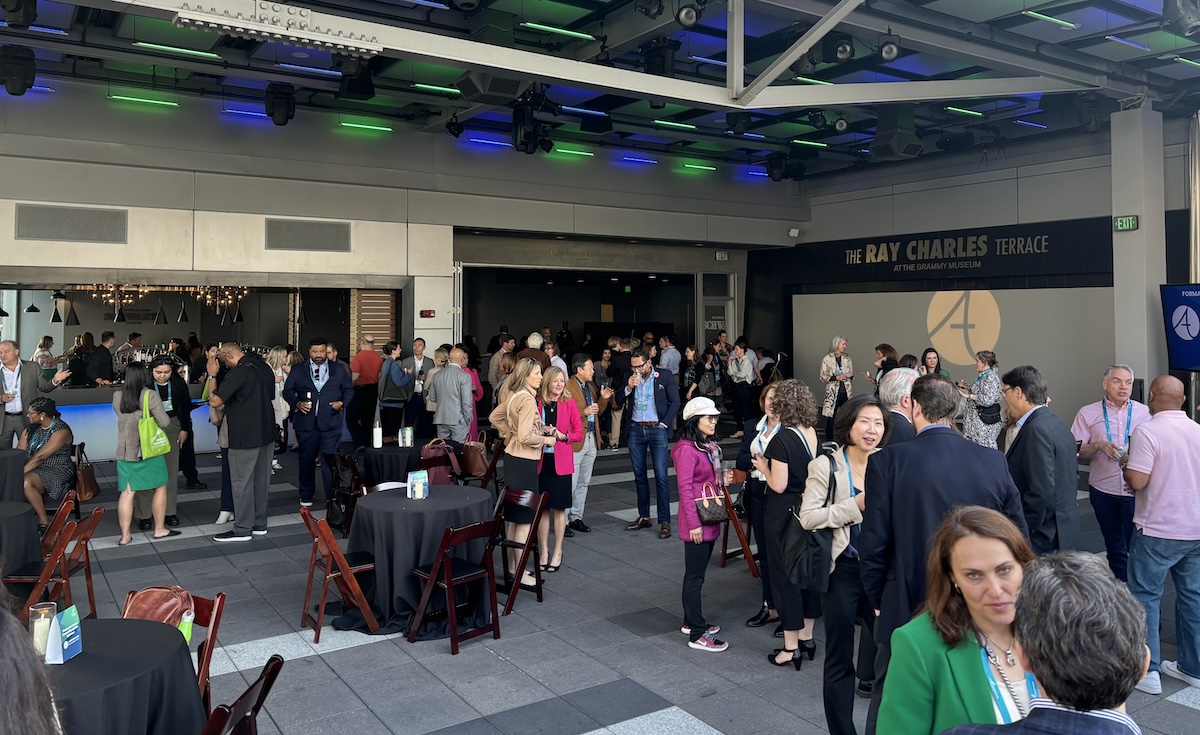Greetings Agents of Impact!
In today’s Brief:
- The mass market opportunity in emerging markets
- Water sensors and ‘forever chemicals’
- Impact investing products across asset classes
Featured: Returns on Inclusion
Billions of low and middle-income consumers represent trillions in impact investment opportunities. Off-grid solar companies were once dependent on grants and highly-concessional capital to prove that low-income and energy-disconnected households make good and reliable business customers. Now, early movers like Sun King, Zola and d.light are securitizing customer payments – and banks and institutional investors are clamoring to invest. “We see a lot of appetite from investors for these kinds of assets,” says Borja Garcia Fernandez of Citi Social Finance, who will join tomorrow’s Agents of Impact Call to help investors seize such opportunities (see, “A cheat sheet to ‘inclusive business’ investing”). Citi last year structured a $130 million securitized loan for Sun King, with backing from British International Investment and Stanbic Bank Kenya. Opportunities to invest in the global mass market are indeed massive, Garcia Fernandez says, in energy services, financial services, education, healthcare, housing, agriculture, logistics and other sectors.
- Entrepreneurial households. The more than half of the global population that lives on less than $7 per day spends trillions of dollars annually on products and services that improve their lives and livelihoods. But don’t label them “the base of the pyramid.” Microfinance providers over the last two decades have “laid the grounds for a different market,” Jyostna Krishnan of Elevar Equity tells ImpactAlpha. “That customer has put that loan to good use, built a business, had kids who have grown up and are contributing multiple sources of income.” Elevar, which has been investing in services for such consumers since 2008, and its sister company Enmasse, now use the term “entrepreneurial households” to define a customer segment that represents $8.8 trillion in annual spending in India alone. “This whole market is fast growing,” Krishnan says, and I don’t mean just in size, but in prosperity.”
- Wake-up call. Elevar, along with impact investing peers like LeapFrog Investments, Accion, Goodwell, Alitheia and Vox Capital, as well as scores of local private fund managers, have for years hammered the message that making the lives of emerging market households better and easier can generate by impact and returns. More mainstream investors are now catching on. Citi in 2021 rolled out a $1 billion bond for social impact projects to expand “access to essential services for 15 million households, including 10 million women, globally by 2025.” Citi’s Social Finance group, part of Citi’s banking division, transacted $3 billion last year. “It’s core to the business,” says Garcia Fernandez.
- Leapfrog technology. Innovations that offer emerging market households clean energy, mobile credit access, crop insurance and agricultural insights also deliver valuable data on user behaviors and preferences. Accion’s $152 million Digital Transformation Fund is helping traditional micro- and rural finance institutions upgrade services for hundreds of millions of borrowers. “Customers are looking for an economic opportunity to make their lives better and thus have more customer loyalty than customers in other markets,” observes Accion’s Abhishek Agrwal. The quality of such customer transactions is key, agrees Krishnan. “There are alternatives springing up and customers will make choices.”
- Keep reading, “Billions of low- and middle-income consumers represent trillions in impact investment opportunities,” by Jessica Pothering on ImpactAlpha.
- Agents of Impact Call. Garcia Fernandez and Elevar Equity’s Amie Patel will join IFC’s Wagner Albuquerque de Almeida, BII’s Martina Castro, and FMO’s Juan Jose Dada to discuss “Investing in livelihoods and access to goods and services for emerging market households,” tomorrow, May 22 at 8am PT / 11am ET / 4pm London. RSVP today.
Dealflow: Water Infrastructure
KETOS clinches $10 million for ‘water data as a service.’ Aging global water infrastructure threatens water quality. San Francisco-based KETOS makes AI-powered water testing and monitoring systems to provide utilities and other water providers real-time intelligence on water quality and usage. Sensors monitor water for lead, alkalinity, mercury and more than two dozen other parameters. Dan Levine of venture capital investor Tenfore Holdings, which led KETOS’ $10 million equity financing, touted the company’s “efficient turnkey solutions.” KETOS monitors over 45 billion gallons of water, and is conducting research to address PFAS, cancer-linked “forever chemicals” that the US Environmental Protection Agency will begin regulating next month.
- Smarter water. Separately, smart water management venture Subeca secured $6 million in Series A financing backed by Amazon’s Climate Pledge Fund, SUEZ and Burnt Island Ventures. The San Diego-based company provides water meters to more than 40,000 small and mid-sized utilities and businesses in the US. Subeca uses Amazon’s Sidewalk communications network to help customers detect and solve water leaks.
- Share this post.
Cellugy raises €4.9 million to use microbes to replace petrochemicals. The Danish startup is commercializing a biodegradable cellulose-based material that can replace petrochemical-based ingredients in textiles, packaging, food and cosmetics. Cellugy uses microbes to make replacement products that can work with standard production equipment. “Reliance on fossil-based petrochemical ingredients is today’s most critical sustainability issue in producing personal care products,” said Cellugy’s Isabel Alvarez-Martos.
- Impact biotech. Celluly’s technology “has the potential to revolutionize not only the personal care industry, which is sorely in need of more sustainable alternatives, but could also disrupt industries like textiles and food,” said Thea Messel of Copenhagen-based Unconventional Ventures, which backs women and underrepresented founders (see Messel’s 2019 “Agents of Impact” profile). Other backers in Cellugy’s $5.3 million seed round included Germany’s ICIG Ventures and Joyance Partners, PSV DeepTech and The Footprint Firm.
- Check it out.
Dealflow overflow. Investment news crossing our desks:
- Starshot Capital raised $35 million for its first fund for early stage, high-impact companies in food and agriculture, materials, chemicals and the built environment. (Starshot)
- RGreen Invest’s Afrigreen Debt Impact Fund secured €10 million ($11 million) from FMO for small to medium-scale clean energy projects in Africa. (APEN)
- Bedrock Materials snagged $9 million in seed funding to produce low-cost, eco-friendly materials for sodium-ion batteries, which charge faster than lithium-ion batteries but have a lower energy density (see, “Climate investors look to back homegrown challenger technologies”).
- ElectriFI made a $1.6 million investment in Gogo Electric (previously Bodawerk) for electric motorcycle taxis in Uganda. (Afrik21)
Signals: Impact Products
Impact products aim to shift portfolio allocations in bonds, private credit and cash. Short duration green bonds. Private credit for regenerative agriculture. Cash management that can accelerate lending for climate-smart community infrastructure. Financial service providers are rolling out investment products for impact investors in asset classes far afield from venture capital and private equity, which have typically been limited to high-net worth individuals and institutional investors. What new impact products are you seeing? Drop us a note.
- Short-duration green bonds. “Publicly listed green bonds have specific sustainability goals and have measurable carbon impact. But there was no vehicle that if you wanted to park cash would not be taking a lot of duration risk,” said Zach Stein of Carbon Collective, which specializes in climate-friendly 401(k) plans. Carbon Collective, along with Artesian, an alternative asset manager based in Sydney, Australia, last week launched the Carbon Collective Short Duration Green Bond ETF, which trades on Nasdaq under the ticker CCSB, to provide liquidity along with capital-preservation and positive environmental outcomes. The fund buys corporate green bonds with only a year or two to maturity, limiting interest-rate risks. Carbon Collective maintains a dashboard that tracks avoided carbon per million dollars invested, as well as the green projects financed by the bonds.
- Regenerative agricultural lending. The private credit market grew to more than $1.6 trillion last year. Agricultural production loans have among the lowest charge off rates. Mad Capital’s second Perennial Fund is one of the few private-credit lenders dedicated to organic farmers (see, “The Liist, May 2024“). Unlike farmland investment funds like S2G Ventures’ Clear Frontiers or Iroquois Valley Farmland REIT, Mad Capital owns no real assets. Instead, it makes flexible loans to finance farmers through a dip in revenues as they transition and get certified as organic, after which they can fetch premium prices. Interest-only repayment terms help farmers manage their cash and are more straightforward than the revenue-based loans Mad Capital initially offered, says Mad Capital’s Brandon Welch.
- Climate cash management. The community development financial institutions and other local lenders that will disburse $20 billion in Greenhouse Gas Reduction funds are beefing up their own balance sheets. CNote’s Climate Cash product helps individuals, corporations and foundations alike park some of their cash in mission-driven and minority depository institutions participating in the GGRF’s green lending (see, “Investors ready products to amplify US green bank funding”). As with CNote’s Impact Cash product, which splits funds across CDFIs, Climate Cash will reduce the burden of setting up direct accounts with multiple mission-driven institutions. “Climate Cash becomes a force multiplier for GGRF,” CNote’s Cat Berman tells ImpactAlpha. Climate Cash funds are federally insured and can be parked overnight or for longer durations.
- Share this story.
Agents of Impact: Follow the Talent
Pacific Community Ventures names Aisha Benson of Nonprofit Finance Fund, Brian Vo of Connect Humanity, and Leslie Lindo of Candide Group to its board of directors… Shareholder Rights Group is looking for a project director… The Sorenson Impact Institute is recruiting a venture capital and impact investing director in Salt Lake City.
Africa Enterprise Challenge Fund seeks a head of gender and inclusion… Canadian pension fund manager PSP Investments is looking for a senior director of cleantech investment… Climate Impact Partners has an opening for a head of carbon project delivery in London… First Street is hosting a panel discussion on climate disclosure regulation, tomorrow, May 22.
👉 View (or post) impact investing jobs on ImpactAlpha’s Career Hub.
Thank you for your impact!
– May 21, 2024











